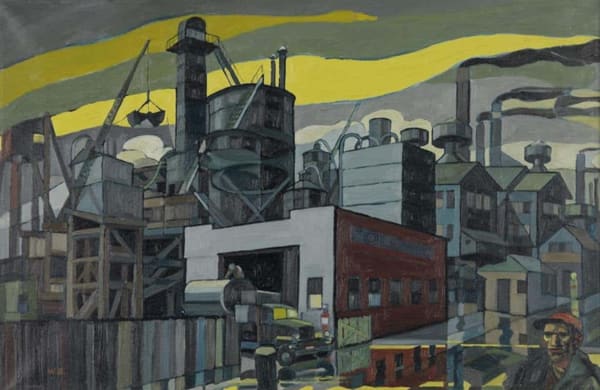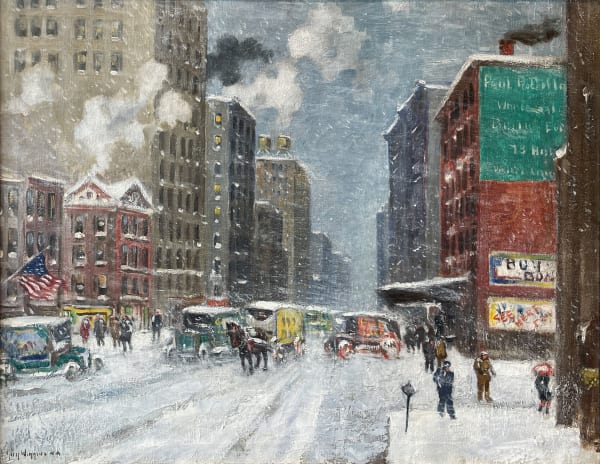William Sharp was born on June 13, 1900, in Lemberg, Austria, where he attended college and the Academy for Arts and Industry. He later studied in Kraków, Poland, and in Berlin and Munich, Germany. Sharp began his career as a designer of stained-glass windows and as a painter of murals. He served in the German army during World War I. After the war he became a newspaper artist in Berlin and a well-known etcher.
Sharp drew political cartoons that were bitterly critical of the growing Nazi movement. As the influence of National Socialism intensified, he began to contribute drawings, under a pseudonym, to publications that were hostile to Hitler. After Hitler assumed power, Sharp was confronted with these drawings and told that he would be sent to a concentration camp. However, in 1934, he escaped to the United States.
His first newspaper assignment in America was making courtroom sketches for The New York Mirror at the trial of Bruno R. Hauptmann for the kidnapping of the Lindbergh baby. As a staff artist at Esquire, where he continued to produce political cartoons, Sharp also illustrated stories by Ernest Hemingway and Thomas Mann.
He was a longtime contributor to The New York Times Magazine and also worked for Life, Colliers, Coronet, and The New York Post. Sharp also did book illustrations for several leading publishers, with Dickens' Old Curiosity Shop for Heritage Press being his first assignment. He illustrated several books for limited editions, including The Diary of Samuel Pepys in 10 volumes. Sharp published several portfolios of etchings and lithographs about the legal and medical professions.
Sharp's precisionist work is represented in many museums, including the Metropolitan Museum of Art, the Queens Museum, the Library of Congress, the Carnegie Institute, and the New York Public Library. William Sharp died in New York City on April 1, 1961.



